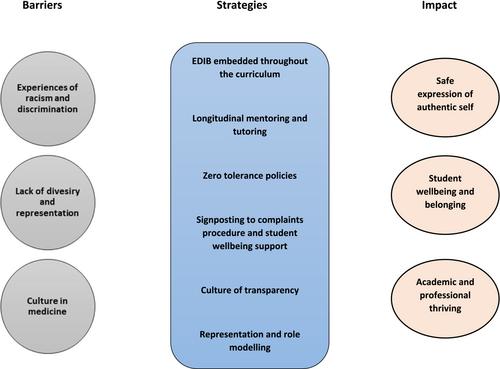‘I sound different, I look different, I am different’: Protecting and promoting the sense of authenticity of ethnically minoritised medical students
Abstract
Background
Being authentic can improve students' well-being and enhance the medical student–patient communication and patient safety. However, the underrepresentation of ethnically minoritised students in medical education can result in identity suppression, interfering with students' ability to succeed academically and professionally.
Methods
- What facilitates and prevents students from being their authentic self during medical school?
- What learning and teaching strategies can enable students to be or become their authentic self?
Findings
Experiences of discrimination, microaggressions and/or racism were the main barriers to authenticity, leading to fear of being discriminated again if students expressed their true self. Lack of diversity, cultural awareness and staff representation were also fundamental barriers. Being authentic was often perceived as contradictory to being professional and a risk that could damage students' reputation. However, when students could express their true self, they felt happier, safer and developed a stronger sense of belonging.
Discussion
To enhance authenticity, students need to see better staff representation, role models they can relate and aspire to, such as Black professors. Equity/Diversity/Inclusion/Belonging (EDIB) training needs to become embedded throughout the curriculum and be delivered by facilitators with lived experiences. Other strategies to promote students' authenticity included mentoring, better signposting to complaints procedure and well-being resources and implementation of ‘zero tolerance’ policies. To our knowledge, this is one of the first studies on the concept of authenticity in medical education and the first study focusing on ethnically minoritised students.


 求助内容:
求助内容: 应助结果提醒方式:
应助结果提醒方式:


